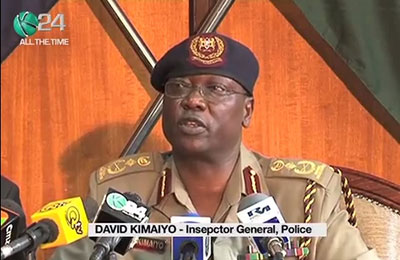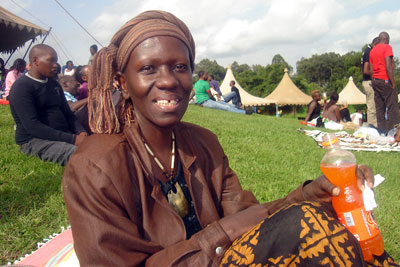
Forced to flee false perceptions, ICC, and Kenyan press
EDITOR’S NOTE: February 15, 2014 marked one year since Omwa Ombara arrived in the U.S. to seek political asylum after attempts on her life in Kenya between May and December 2012. She fled her native land after being contacted by International Criminal Court (ICC) investigators probing the violence that followed the Kenyan elections in 2007-2008,…
Kenya media, security forces soul search after Westgate
Should journalists expect support and protection from security agents when they risk their lives to report on security operations? What if their coverage could potentially expose military strategies? Why are journalists disparaged as unpatriotic when they show how security operations fail?
Advertising and Censorship in East Africa’s Press
The printed word is thriving in parts of Africa, but advertisers’ clout means they can often quietly control what is published. By Tom Rhodes Kenyans read election coverage in the Mathare slum in Nairobi, the capital, on March 9, 2013. One reason that advertising revenue trumps circulation for East Africa’s newspapers is that readers often…
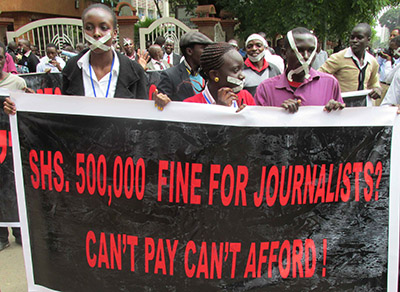
Kenya parliament passes draconian media laws
Nairobi, December 5, 2013–Kenya’s National Assembly today passed contentious anti-press legislation, the Kenya Information and Communication (Amendment) Act and the Media Council Act, which will effectively silence critical reporting through a new government-controlled regulator and the threat of hefty fines.
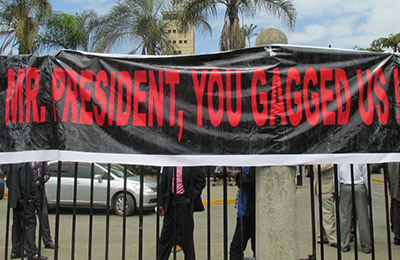
Kenya’s press takes to the streets against bill
“Mr. President, you gagged us!” said a banner tied to the gates of Parliament today. Kenya’s Editors Guild and the Kenya Correspondents’ Association organized peaceful demonstrations across the country to protest a media bill currently under parliamentary review. Protests were held in every county in the country, according to William Janak, chairman of the correspondents’…
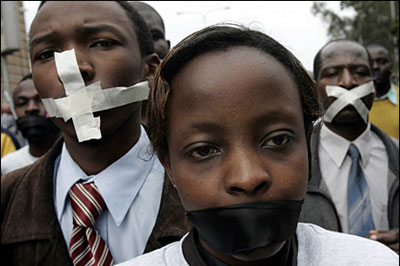
Just the fear of draconian press laws is enough
Few in Kenya’s media could comprehend how a media bill, considered the most repressive in Kenya’s 50-year history, could sail so easily through Parliament last week. Fittingly, Parliament passed the Kenya Information and Communications Amendment Bill on Halloween. It is awaiting President Uhuru Kenyatta’s signature following a 14- day deliberation period.
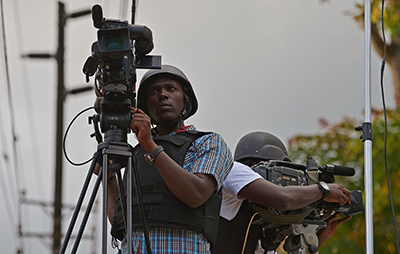
Westgate siege shows press’ lack of security training
Rumor had it that thieves and police had exchanged gunfire during the robbery of a bank at the Westgate Mall. That was the word that first reached some Nairobi newsrooms that Saturday about the gunshots many Kenyans heard coming from the luxurious shopping mall.
